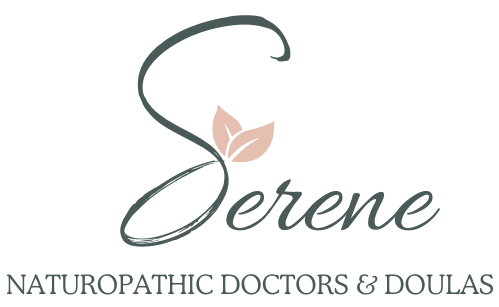
Polycystic Ovary Syndrome (PCOS) is a common hormonal disorder that affects women of reproductive age. It is marked by a combination of symptoms such as irregular menstrual cycles, cysts on the ovaries, and an imbalance in hormones such as insulin and androgens. Conventional treatments for PCOS often involve hormonal birth control, insulin-sensitizing medications like metformin, or even surgery. However, many women seek natural, holistic treatments to manage the condition and alleviate symptoms without relying on pharmaceuticals.
Naturopathic medicine, with its focus on treating the whole person rather than just symptoms, offers a unique and effective approach to managing PCOS. Naturopathic doctors (NDs) combine the principles of natural medicine, nutrition, and lifestyle adjustments to address the underlying causes of PCOS, rather than simply masking the symptoms. In this article, we will explore the ways Naturopathic Doctors treat PCOS naturally.
1. Personalized Diet and Nutrition Plans
One of the key elements in managing PCOS naturally is addressing diet and nutrition. Naturopathic doctors often work with patients to create a diet tailored to their specific needs, focusing on stabilizing blood sugar, balancing hormones, and supporting overall reproductive health. Here are some common dietary recommendations:
A. Low-Glycemic Index (GI) Diet
Women with PCOS often have insulin resistance, where their bodies produce too much insulin in response to high blood sugar. High levels of insulin can contribute to the production of androgens (male hormones), leading to symptoms such as acne, hair thinning, and excessive hair growth. A low-GI diet focuses on eating foods that do not spike blood sugar, such as whole grains, legumes, vegetables, and healthy fats.
B. Anti-inflammatory Foods
PCOS is associated with chronic low-grade inflammation. Naturopathic doctors may recommend a diet rich in anti-inflammatory foods like fatty fish (salmon, mackerel), berries, turmeric, ginger, and leafy greens. These foods help reduce inflammation and improve insulin sensitivity.
C. Nutritional Supplements
Naturopathic treatments often include the use of nutritional supplements to address deficiencies that may contribute to PCOS symptoms. Common supplements include:
-
Inositol: A type of B-vitamin-like compound that can help improve insulin sensitivity and regulate ovulation.
-
Vitamin D: Many women with PCOS have low vitamin D levels, and supplementation can help balance hormones and improve fertility.
-
Omega-3 fatty acids: Found in fish oil or flaxseed oil, omega-3s reduce inflammation and support overall hormone balance.
-
Magnesium: Helps in managing insulin resistance and can ease symptoms like cramping and fatigue.
-
Zinc: Known to help reduce excess androgens, which can improve symptoms like acne and excess hair growth.
2. Herbal Medicine
Naturopathic doctors frequently use herbal medicine to treat hormonal imbalances in PCOS. Certain herbs have been found to help regulate menstruation, improve ovulation, and reduce symptoms like acne and excessive hair growth. Common herbs include:
A. Vitex (Chaste Tree Berry)
Vitex is one of the most commonly recommended herbs for women with PCOS. It works by balancing progesterone levels and regulating the menstrual cycle. By stimulating the pituitary gland, Vitex encourages the production of luteinizing hormone (LH), which is essential for ovulation.
B. Saw Palmetto
Saw palmetto is used to reduce excess androgen production. It can help with symptoms such as facial hair growth, acne, and scalp hair thinning. It works by inhibiting the enzyme that converts testosterone into dihydrotestosterone (DHT), a hormone responsible for these symptoms.
C. Spearmint Tea
Spearmint tea has been shown to reduce excess hair growth in women with PCOS. Research suggests that drinking two cups a day can help lower androgen levels, which in turn can reduce symptoms like hirsutism (excess hair growth).
D. Licorice Root
Licorice root has anti-androgenic properties, making it beneficial for reducing symptoms like acne and excessive hair growth. It may also help regulate menstrual cycles by promoting hormonal balance.
3. Addressing Insulin Resistance
One of the most significant contributors to PCOS is insulin resistance, where the body cannot efficiently process sugar, leading to higher insulin levels. Elevated insulin can exacerbate hormonal imbalances, particularly by increasing androgen production. Naturopathic doctors focus on improving insulin sensitivity to help control PCOS symptoms.
A. Exercise and Physical Activity
Exercise plays a crucial role in improving insulin sensitivity. Naturopathic doctors often recommend a combination of aerobic exercise (like walking or swimming) and strength training to help women with PCOS manage weight, regulate insulin levels, and improve hormonal balance.
B. Stress Management
Stress can worsen insulin resistance and contribute to the hormonal imbalances that occur in PCOS. Naturopathic doctors teach stress-reduction techniques, such as yoga, meditation, deep breathing exercises, or acupuncture, to help manage stress levels and improve overall well-being.
4. Acupuncture and Traditional Chinese Medicine
Acupuncture is another effective treatment for PCOS in naturopathic medicine. This practice, which is based on Traditional Chinese Medicine (TCM), involves inserting thin needles into specific points on the body to balance the flow of energy (Qi). Acupuncture can help regulate the menstrual cycle, improve ovulation, reduce stress, and enhance insulin sensitivity.
Research suggests that acupuncture may also help in improving fertility and reducing symptoms such as acne and excessive hair growth by influencing hormone production, particularly by promoting better circulation to the ovaries.
5. Lifestyle Modifications
Beyond diet, exercise, and supplements, naturopathic doctors emphasize the importance of lifestyle changes in managing PCOS. These include:
A. Sleep Hygiene
Getting sufficient quality sleep is vital for hormone regulation. Naturopathic doctors may recommend lifestyle adjustments, such as creating a consistent sleep schedule, reducing screen time before bed, and using relaxation techniques to promote restful sleep.
B. Weight Management
While weight gain isn’t a direct cause of PCOS, maintaining a healthy weight is crucial for managing the condition. Naturopathic doctors often guide patients on weight-loss strategies, focusing on healthy, sustainable methods like mindful eating, portion control, and physical activity.
C. Detoxification
Many NDs incorporate detoxification protocols, including liver support, as part of PCOS treatment. The liver plays a key role in metabolizing hormones, and a sluggish liver can exacerbate hormonal imbalances. Supporting liver health with herbs like dandelion root or milk thistle may help balance hormones and reduce symptoms.
Conclusion
PCOS is a complex and often frustrating condition to manage, but with the right approach, it can be treated effectively. Naturopathic medicine offers a holistic, patient-centered approach to managing PCOS by addressing the root causes of hormonal imbalances, insulin resistance, and inflammation. Through personalized diet plans, herbal remedies, exercise, and stress management techniques, Naturopathic Doctors provide natural, safe alternatives to conventional treatments. By focusing on lifestyle modifications and integrating both modern and traditional healing practices, naturopathic medicine empowers women to take control of their health and manage PCOS naturally.
If you’re considering a naturopathic approach to PCOS, it’s essential to work with a licensed naturopathic doctor who can tailor a treatment plan specific to your needs and provide ongoing support.
Explore Polycystic Ovary Syndrome (PCOS) support with a Naturopath Toronto at our trusted Naturopathic Clinic Toronto—where science meets serenity.
Serene Clinic Naturopathic Medicine Book Your Free Consultation Today
Connect with a Naturopathic Doctor and Doula near you, whether you are in Toronto or anywhere in Ontario.
Serene Clinic Naturopathic Doctors Book your complimentary meet and greet with an Ontario licensed Naturopathic Doctor and Doula:
https://sereneclinic.janeapp.com
This article is for informational and educational purposes only and is not intended as a substitute for medical advice, diagnosis, or treatment. Always seek the advice of your physician or other qualified health care provider with any questions you may have regarding a medical condition.






